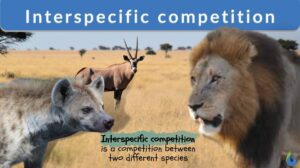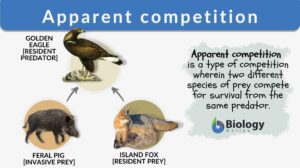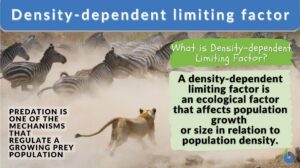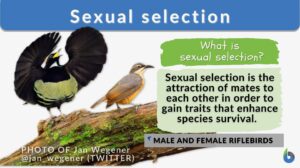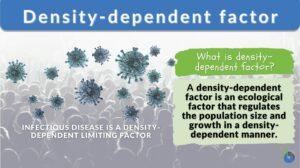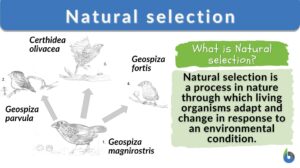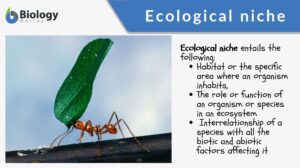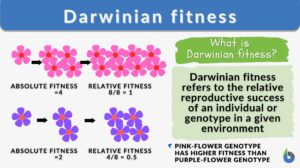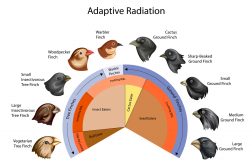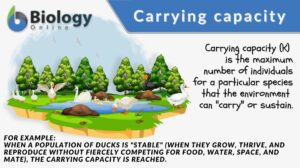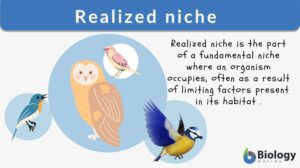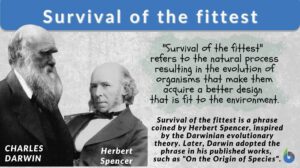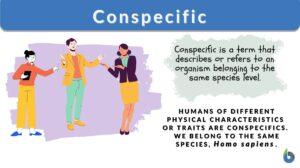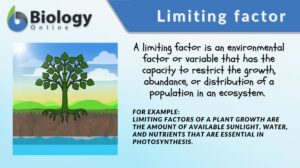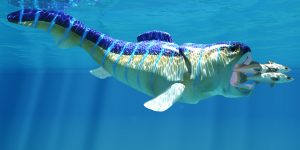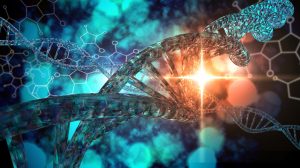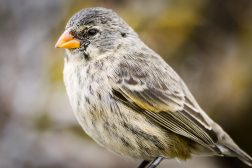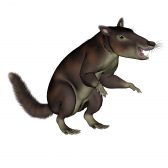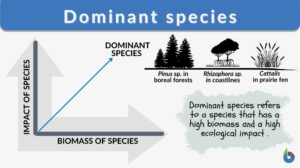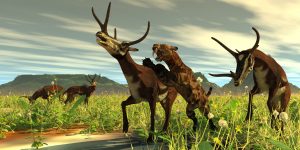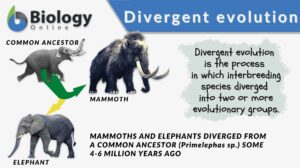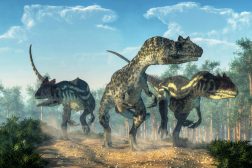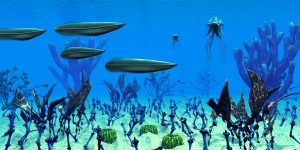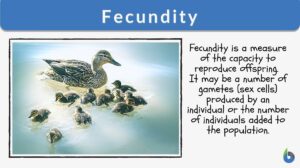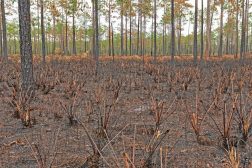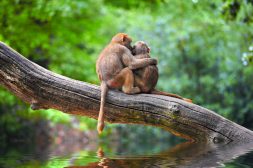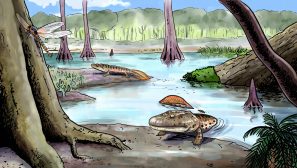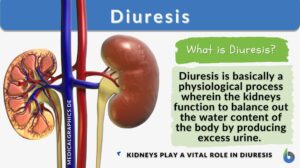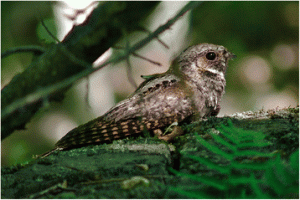Search Results for: competition
Interspecific competition
Interspecific Competition Definition In Biology, competition is defined as the process that occurs among species that have... Read More
Apparent competition
Competition Definition One of the many branches of biology is ecology. Ecology is the study of the relationships that the... Read More
Exploitation competition
Definition noun (ecology) A form of competition wherein organisms indirectly compete with other organisms for resources by... Read More
Competition
Definition noun (ecology) A symbiotic relationship between or among living things that compete for a limited resources,... Read More
Interference competition
Definition noun (ecology) A form of competition wherein organisms directly vie for resources, such as by... Read More
Intraspecific competition
Definition noun (ecology) A form of competition between members of the same species Supplement In biology, competition... Read More
Density dependent limiting factor
What Is A Density-Dependent Limiting Factor? Density-dependent limiting factors are limiting factors, which, depending on... Read More
Sexual selection
What is Sexual Selection? The definition of sexual selection is very interesting in biological terms. The sexual selection... Read More
Density dependent factor
Density-dependent factors are the limiting factors of an ecosystem that regulate population growth in a density-dependent... Read More
Natural selection
Natural Selection Definition What is natural selection in biology? Natural selection is defined as a process in nature... Read More
Population Growth and Survivorship
By: Maria Victoria GonzagaPreviously, we learned about biodiversity and endemism. Now, let's look at the... Read More
Ecological niche
Ecological Niche Definition An ecological niche refers to the interrelationship of a species with all the biotic and... Read More
Darwinian fitness
Darwinian Fitness Definition Darwinian fitness refers to the measure of an individual organism's or genotype's reproductive... Read More
Adaptive Radiation
Reviewed by: Mary Anne Clark, Ph.D.When Charles Darwin was in the Galapagos Islands, one of the first things he... Read More
Carrying capacity
Carrying Capacity Definition What is carrying capacity? In biology and environmental science, the carrying capacity of a... Read More
Diversification
An organism in the mainland experiences two competitions namely inter and intraspecific. Hence due to the pressure on the... Read More
Realized niche
What is a niche? A niche can be defined as the means by which a species or an individual interacts with its environment. In... Read More
Survival of the fittest
When we talk about evolutionary processes, the usage of the phrase "Survival of the fittest" has been very common in... Read More
Conspecific
Biodiversity is divided into different hierarchical levels in order to study them in a systematic way. Whether it be a... Read More
Limiting factor
Limiting Factor Definition A limiting factor refers to any of the factors (variables) in an environment capable of limiting... Read More
Equilibrium
Equilibrium Definition In Biology Equilibrium refers to the state of balance and stability. In biology, equilibrium is... Read More
Parasitism
Organisms depend on different sources of food to survive. Larger organisms like plants make their own food (autotrophs) and... Read More
Evolution of Life – Ancient Earth
Continuing from the previous tutorial investigating the origins of life on Earth....Life began to flourish, and the... Read More
Darwin and Natural Selection
Reviewed by: Mary Anne Clark, Ph.D.In the 19th century, a man called Charles Darwin, a biologist from England,... Read More
Mammalian Ancestors
Humans are mammals, the most successful taxonomic class of organisms to colonize the Earth. The word mammal derives from the... Read More
Protein Activity and Cellular Metabolism
Protein Binding Sites The ability of various molecules and ions to bind to specific sites on the protein surface forms the... Read More
Dominant species
Dominance is the state of being supreme or dominant. Community dominance refers to the form of dominance where certain... Read More
Early Mammals on Earth
By the time the dinosaurs were extinct 65 million years ago, the world's landmass had split up into more or less the... Read More
Divergent evolution
Divergent Evolution Definition Divergent evolution refers to the process by which interbreeding species diverged into two... Read More
The Dinosaurs
Everyone has heard about the dinosaurs. No doubt one of the reasons why is because of their size, another being the fact... Read More
Arthropods
There are over two million species of arthropods, who initially arrived on Earth in the middle of the Cambrian period.... Read More
Ecosystem Succession
Just one of the amazing aspects of life on Earth is that it spreads to all areas where the habitat will allow it to survive.... Read More
Population Regulation in an Ecosystem
Darwin focused some of this work in regards to the population size of a species, and what factors may affect them. He... Read More
Amphibians & Early Reptiles
Amphibia Definition (Science: zoology) Amphibia is one of the classes of vertebrates.The amphibia are distinguished by... Read More
Tracking the migration of Whip-poor-will in Americas
Eastern whip-poor-will (Antrostomus vociferous) is continuously declining due to habitat loss and unavailability of insects... Read More
